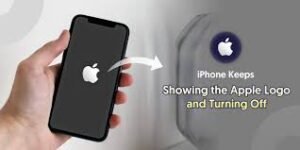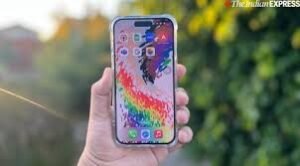Apple is the target of a historic lawsuit brought by the US, which claims the tech giant is monopolizing the smartphone market and stifling competition.

The Justice Department claims in the lawsuit that the business exploited its dominance over the iPhone app store to “lock in” developers and users. It charges the company with using unlawful measures to prevent apps deemed dangerous and detract from competing goods. Apple disputes the allegations and has promised to “vigorously” combat the lawsuit. 
The extensive lawsuit, which was submitted to a federal court in New Jersey alongside the attorneys general of sixteen states, is one of Apple’s largest legal challenges to date. In recent years, the company has been fending off growing accusations against its business methods. It claims that in an effort to increase its own profits at the expense of users and stifle innovation, Apple implemented “a series of shapeshifting rules” and restricted access to its hardware and software. Attorney General Merrick Garland stated at a press conference announcing the lawsuit, “Apple has maintained monopoly power in the smartphone market not simply by staying ahead of the competition on the merits but by violating federal anti-trust law.”Consumers shouldn’t have to pay more because businesses violate the law.” The 88-page complaint centers on five alleged instances of Apple power abuse. For instance, the US claims that Apple obstructed the creation of streaming apps and so-called super apps by using its app review process because it was concerned that these types of apps would make users less likely to continue with iPhones. Additionally, it claims that Apple has hindered the ability of iPhones to be connected to competing smart watches and prevented banks and other financial institutions from using its tap-to-pay technology, which has allowed Apple to profit billions of dollars from the processing of Apple Pay transactions.
The complaint also centers on Apple’s handling of messages sent from competing phones, which it identifies with green bubbles and restricts access to other functions and videos. According to the report, Apple’s actions have generated “social stigma” that has aided the tech giant in keeping control of the market. Apple claimed that its consumers were devoted because they were content and that it was free to select its commercial partners in accordance with US law. It has used security and privacy concerns as justification for its regulations. Assuming the action would not succeed, the corporation declared that it would seek the court to dismiss it. “We believe this lawsuit is wrong on the facts and the law, and we will vigorously defend against it,” the business stated.According to Bill Baer, a visiting scholar at Brookings and former Obama administration antitrust officer, the case will depend on the issue of motivation. “Anti-trust laws and the courts’ interpretation of them suggest that once you’re a monopolist,” he stated, “if you do engage in behaviours that have no legitimate business justification other than to limit competition and cement your monopoly, then that is problematic.” It is the first antitrust lawsuit brought against Apple under President Joe Biden’s administration and the third legal action the US government has brought against the corporation since 2009. Should the government prevail in court, Apple might be forced to revise its present agreements and procedures, or the business might even be forced to dissolve.

Apple’s stock dropped more than 4% as traders considered the ramifications of the court dispute. As the lawsuit moves through the legal system, any prospective modifications would take years to come to pass. Professor Rebecca Allensworth of Vanderbilt University referred to the case as “a blockbuster” in reference to the previous legal actions the Justice Department has taken against the main digital companies. Suits against Google, Meta, and Amazon are similar. Fundamentally, she explained, it was about enhancing smartphone capability and opening up the technology and software to customers and other businesses. “It’s not about breaking up Apple into small units or spinning off divisions,” she stated.A growing legal backlash against Apple has been directed towards its business practices and iOS environment. It and Epic Games, the company behind Fortnite, are embroiled in a protracted legal dispute. It was fined €1.8 billion (£1.5 billion) by the EU last month for violating competition laws pertaining to music streaming.
The European Commission said that the company has stopped streaming services from telling customers about payment options available outside of the Apple app store. Apple was ordered to eliminate all restrictions by competition commissioner Margrethe Vestager, who claimed that the tech giant had exploited its dominating position in the market for ten years. Apple declared that it would file an appeal of the ruling. Professor of corporate law at Case Western Reserve University in Ohio, Anat Alon-Beck, claimed that the new complaint from the justice department was “far more extensive.”than its earlier legal challenges in the European Union.It’s “about time” that the DOJ took action, she continued, adding that “it’s not just about the 30% app store fee, but about the core unfair practices of Apple.” “Apple often keeps competitors out of its ecosystem. Apple is harming a great deal of start-up companies, stakeholders, clients, and, in my opinion, its stockholders by acting in that way,” she stated. Apple has a market share of over 70% in the US smartphone industry and over 65% in the global smartphone market, according to the law department.


